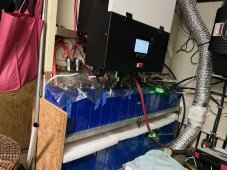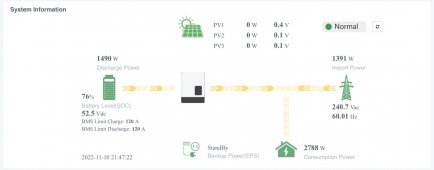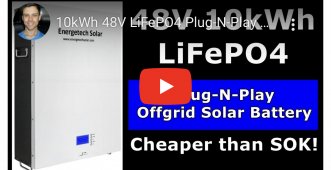I watched Will Prowse review on this Energetech Solar battery 10KWh 51.2V 200Ah LifePO4:
Afterwards, I decided to click on the link and saw something in the battery description that would never had occurred to me as a potential problem:
I had no idea that this is a possible factor in selecting batteries nor had I ever seen in another advertisement for batteries any information that the batteries can or can't use AC coupling.
I read one article from an inverter manufacturer that recommended sizing batteries equal to or more than the inverter capacity, which was my intention as a first buy to match the inverter capacity. Later, I would buy another set of batteries to double the inverter capacity.
Energetech Solar
requires (not recommends) one 10KWh 51.2V 200Ah LifePO4 batteries as follows:
1. Requires one unit (10Kwh) to run a 3 kW Inverter.
2. Requires minimum of two units (20 Kwh) to run a 6 kW Inverter.
3. Requires minimum of three units (30 Kwh) to run a 12 or 15 kW Inverter.
Remember these batteries don't AC couple, so the numbers are with PV only.







